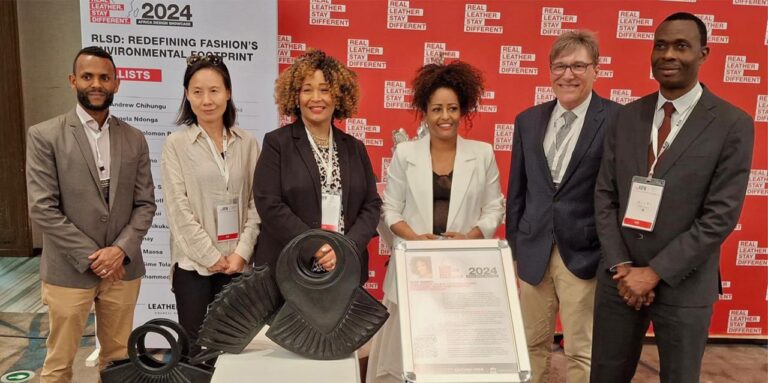Ethiopian Prime Minister Abiy Ahmed on 14th August 2024 launched the construction of the Chinese-contracted “Addis Tomorrow Special Economic Zone” at the heart of Addis Ababa, the country’s capital. This development project aimed at significantly enhancing the city’s economic and social infrastructure.
The Addis Ababa City Administration and China’s China Communications Construction Company (CCCC) inked an agreement a year before to build the economic zone, that covers an area of 35 hectares, at an estimated cost of 700 million U.S. dollars.
The economic zone is designed to function like a new city within Addis Ababa and aim to transform Addis Ababa into one of Africa’s top cities within the next three to five years by building smart communities with various facilities, including residential apartments, financial and business centers, schools, hospitals, sports fields, shopping malls, hotels, and recreational centers. The Zone will include an international economic and commercial zone, an educational and cultural zone, a financial and business zone, and a modern housing zone.
The government is also planning to connect other economic areas whose constructions are underway in other parts of the capital through the ongoing Addis Ababa corridor development. When completed, the Addis Tomorrow Special Economic Zone is expected to boost its international competitiveness and promote more business opportunities.
This new Addis Tomorrow Special Economic Zone is strategically located in the Horn of Africa and expected to transform the city’s appearance and beauty and aims to make it a major tourism and international shopping destination as well. It’s also located in proximity to the Middle East and Europe, enhances its international trade and serves as Africa’s key aviation hub.
CCCC is not new to Ethiopia and CCCC’s works have been highly appreciated by the Ethiopian due to its proven success in completing major projects on time to a very high standard at reasonable price. Out of many Chinese companies working in Ethiopia, CCCC’s contribution also has undeniably made strategic changes to Ethiopia.
CCCC is a major state-owned, global leading integrated service provider specializing in large infrastructure projects. With business covering investment, construction and operation of transport infrastructure, equipment manufacturing, real estate and comprehensive urban development. CCCC has engaged in related businesses for more than 100 years and has provided products and services in more than 150 countries. CCCC is also actively involved in numerous Belt and Road Initiative (BRI) projects around the world.
Since CCCC came to Ethiopia first in 1998, it is actively engaging in many large-scale infrastructure projects in Ethiopia, including industrial parks, highways, airports, railways, and real estate development projects. The CCCC is praised for its success in the construction of Ethiopia’s flagship infrastructure projects Addis Ababa-Adama expressway and the China-aided landmark development project Friendship Square in Addis Ababa.
A CCCC built 50 million U.S. dollar domestic passenger terminal project also inaugurated at Bole International Airport in Addis Ababa in May this year, which includes major expansion and renovation works, is set to more than double the terminal’s annual passenger handling capacity.
CCCC also constructed the 345 million U.S. dollar expanded terminal of the Bole International Airport which was inaugurated in 2019. The expansion project tripled the airport’s size and increased its annual passenger handling capacity from 7 million to 22 million passengers.
With clear vision, Ethiopia is planning to turn itself into Africa’s main aviation hub. Recently, the country signed an agreement for the design of a new four-runway airport at Abusera in Bishoftu city, around 45 km from the capital Addis Ababa. It will be Africa’s biggest airport when the construction is completed in 2029. Upon completion, the new airport is projected to have the capacity to serve 110 million passengers each year, which is four times the current capacity of Bole International Airport. Without doubt, CCCC and other Chinese companies will support this great development project that can enhance Ethiopia’s connectivity which is vital for economic growth.
CCCC also built an Arerti Industrial Park which dedicated to producing construction materials, located 140 kms east of Addis Ababa and the Mekelle Industrial Park dedicated to textile and apparel sectors in Mekelle city, capital of Tigray regional state, located 783 km north of Addis Ababa.
With the large-scale development of industrial parks across the country, Ethiopia wanted to become Africa’s biggest manufacturing hub and meet the demands of the job market and bring rapid development to Ethiopia. China’s contribution in this regard is highly visible across the country and very much appreciated by the people.
Ethiopia’s first toll road, the Addis Ababa-Adama Expressway also built by CCCC, that substituted the previously decaying road that connects the capital Addis Ababa to Adama – capital of Ethiopia’s largest Oromia regional state some 100 km south of Addis Ababa. The Addis Ababa-Adama Expressway is also considered as Ethiopia’s first accomplishment of its cooperation with China in the implementation of the Belt and Road Initiative (BRI).
Ethiopia is Africa’s second most populous country after Nigeria, has achieved remarkable progress in recent years with the government’s comprehensive agricultural and economic development plans. That has helped Ethiopian economy to diversify its export basket in other sectors from a predominantly agrarian-based economy to other sectors such as manufacturing, tourism, mining and ICT to guarantee a sustainable growth path.
China has always been the development partner of Ethiopia and China’s investment have had strategic changes to Ethiopia and has won praise from the Ethiopian people for bringing enormous achievements to Ethiopia’s growing economy and bringing tangible benefits to ordinary people.
Since Ethiopia and China signed the first economic and technical cooperation framework agreements in 1971, one year after establishing the diplomatic relations in 1970, the cooperation of the two nations showed steady growth. Even though at the beginning China’s cooperation mainly focused on livelihood support and capacity building, later it expanded into more people centric holistic cooperation such as financing development projects and programs, foreign direct investment (FDI), trade and construction that can support countries long-term comprehensive development plans.
China has massively invested in Ethiopia’s key infrastructures projects such as railways, highways, telecommunication, airport terminal, industrial development, construction of electric power generating, distributing and substations that align with Ethiopia’s long term high-quality development priorities which are directly coherence with Chinese government development initiatives, Forum on China Africa Cooperation (FOCAC) and BRI.
Ethiopia recognises the potential of Addis Tomorrow Special Economic Zone, which aims to expand business opportunities in Ethiopia through high-quality investments and technology transfer, for that partnering with Chinese companies like CCC with exceptional combination of inside and outside experience with Special Economic Zones, is the wise choice.
China’s commitment in the human community with a shared future and its obligation to be a key partner and a member of the Global South countries like Ethiopia and support its socioeconomic development offered a sense of continuity and certainty to the Global South.
Maya Majueran currently serves as a Director of BRISL, an independent & pioneering Sri Lankan-led organization, with strong expertise in BRI advice and support. Maya can be contacted at: mayalk2000@gmail.com





